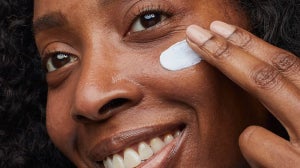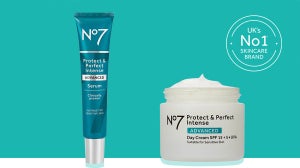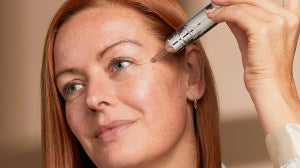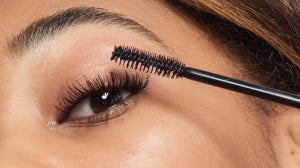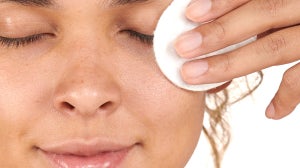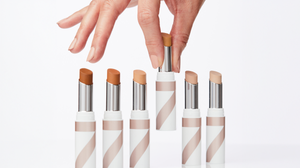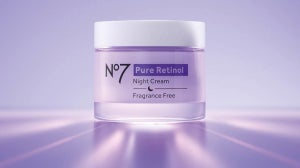
Has your skin lost its sparkle recently? Does it feel drier and more irritated than usual? If so, it sounds like you could be dealing with dehydrated skin. Just like our bodies, our skin naturally loses water every day. But if it loses more than it receives, it can quickly become thirsty and dehydrated.
What are the symptoms of dehydrated skin?
When your skin’s dehydrated, the repair process becomes compromised. This can cause an increase in sensitivity, making you more prone to irritation, breakouts and inflammation. You may also notice dry and scaly skin that feels tight and itchy developing around your nose, chin and eyebrow area. If that wasn’t enough, dehydrated skin can also encourage the development of wrinkles, uneven skin tone and discolouration.
It can be easy to mistake dehydrated skin for dry skin, because of the similar dry and itchy symptoms. However, they couldn’t be more different. Dry skin is a skin type, which is something we’re either born with or which develops over time, where the skin is lacking in natural oils. Dehydrated skin on the other hand is a more temporary skin condition where the skin is lacking in water.
So, what’s making your skin so dehydrated? Not drinking enough water is often to blame. But things such as air conditioning, sun exposure, using harsh skincare products and spending too long in a hot shower can also zap the moisture from your skin.
Here are our expert tips on how you can effectively manage your dehydrated skin to minimise these symptoms, so you can get your youthful glow back in no time:
Drink more water
This may seem like an obvious tip, but it’s an important one, nevertheless. We all know how important it is to drink at least 8 glasses of water each day to keep our entire bodies healthy and hydrated. But our skin is the last organ to receive this water. So, if you’re not drinking enough of it, your skin will go without; leaving it thirsty and dehydrated.
Boost your water intake by having a glass at mealtimes and by sipping on a water bottle throughout the day. You can also get water from the food you eat, so stock up on a few extra cucumbers or a watermelon next time you go shopping.
Add hyaluronic acid into your skincare routine
One of the simplest and most effective ways of managing dehydrated skin is by adding hyaluronic acid into your skincare routine. Hyaluronic acid is a natural substance our bodies produce and is mainly found in our skin and eyes. Often known as nature’s moisturiser, it attaches itself to water particles in your skin to help its cells retain as much moisture as possible.
By using products that contain hyaluronic acid such as the No7 HydraLuminous Water Concentrate, you’re giving your skin an extra hydration boost each day, which can help to make your skin soft and supple, instead of dry and tight. It’s also been proven to smooth out those dreaded fine lines and wrinkles, leaving you with skin that looks flawless.
Reduce your caffeine and alcohol intake
Believe it or not caffeine and alcohol are two of the biggest offenders for causing dehydrated skin because they both considerably reduce your skin’s water content. So, if you want to effectively tackle your dehydrated skin problem, cutting back on your alcohol and caffeine intake can be a big help.
But don’t feel like you have to stop having your morning cup of coffee or a glass of wine after work altogether. Skincare experts say you can still enjoy two cups of coffee and a glass of wine per day without worrying about drying your skin out too much.
Stay away from high temperatures
We know that there’s nothing more enjoyable than a nice, warm bath or shower. But if the temperature is too high, it can strip the protective oil layer from your skin, which can lead to the development of dry, itchy patches and rashes. To prevent this from happening and to keep your skin as healthy as possible, always keep your water temperature at a lukewarm level when you bathe or wash your face.
Don’t forget about the temperature outside too. Protect your skin from the sun’s harmful UV rays by always applying a sun cream or moisturiser with an SPF of 15 or above and 5* UVA before leaving the house. Doing this can also protect your skin from harsh dry winds and air conditioning which can also dehydrate your skin.

Related Articles
